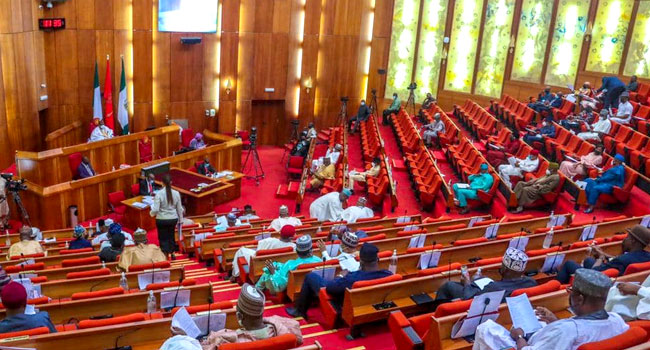As the National Assembly commences the screening of President Bola Tinubu’s ministerial nominees today, have expressed diverse expectations and concerns regarding the screening exercise to determine the suitability and competence of the nominees.
Out of the 28 ministerial nominees, at least 15 have submitted their credentials, including the Women Leader of the All Progressive Congress, Betty Edu; Uju Ohaneye; Tunde Ojo; Abubakar Danladi, Uche Nnaji; and former Nexim Bank, Managing Director, Stella Okotette.
Ahead of the screening exercise, Nigerians have spoken about the need to match the right candidate with the appropriate portfolio, saying it would ensure that individuals with the necessary skills, expertise, and experience are assigned to roles that align with their strengths, which will in turn, maximise competence and performance.
According to Sections 144(5) and 147 of the 1999 Constitution, ministerial appointments must be in conformity with the provisions of Section 14(3) of the Constitution.
The President is mandated to appoint at least one Minister from each state, ensuring that every state has representation in the federal cabinet.
A public affairs analyst Alabi Ayodeji, believes that by not assigning portfolios to the nominees before the screening, President Tinubu missed an opportunity to set a standard.
Ayodeji contends that this practice would have enabled a more robust evaluation and provided a basis for assessing the ministers’ performance at the end of their term.
Similarly, Chukuka Okorie from Ebonyi state reasoned that appointing ministers to portfolios that align with their professional backgrounds, which would lead to progress and effective governance.
“Firstly, the bane of the ministerial performance of the past years has been the lack of knowledge and commitment. If everyone is assigned the portfolio for which he or she is a professional, there will be progress.
“Secondly, antecedents of an individual should be of great importance. That places such a person on a better footing to get it right. We should bury sentiment and put Nigeria first,” Okorie said.
Nigerian journalist and television anchor Reuben Abati, raised concerns about past screening processes, asserting that many ministers who served under President Muhammadu Buhari were relatively unknown individuals who failed to make significant impacts during their tenure.
Abati said “Most of the Ministers who served under him (President Buhari) were great unknowns. They stayed in office for eight years, sleep-walked through office, and on top of that they were decorated with national honours!”
Decrying the seemingly superficial nature of the screening questions, which often bear no relevance to the eventual portfolios assigned to the ministers, he added: “Till date, the screening of ministerial nominees has been a complete charade. Questions that are posed to the persons being screened may have no bearing whatsoever on the portfolio that would be assigned to them eventually.
“The Senate must not clear anybody for clearing sake. It must look out for nation-builders, and change-agents who can add value to the growth and development process. The screening must be thorough and meaningful,” Abati said.
Nigerians believe that the issues facing the country are multifaceted and public trust in government can be bolstered by demonstrating that qualified individuals are appointed to key roles.
Meanwhile, the Senate Leader Opeyemi Bamidele, has reassured Nigerians that the Senate will conduct a thorough scrutiny of the ministerial nominees.
Bamidele explained: “Nigerians are expecting us to do a thorough screening. But take a bow and go is not an unparliamentary convention, it has become a practice all over the world.
“That person must be a former member of the parliament who is well known to us. Somebody we have confidence in his ability to give Nigerians qualitative leadership”.
According to the Chief of Staff to the President Femi Gbajabiamila, another set of 13 ministerial nominees is expected to be sent to the Senate for screening and confirmation in the coming days.
The NewsGuru.com (TNG) notes that previous administrations had submitted ministerial lists in multiple batches.
For instance, during Goodluck Jonathan’s tenure in 2011, the ministerial list was submitted in three batches, while President Muhammadu Buhari submitted his list in two batches in 2015.

